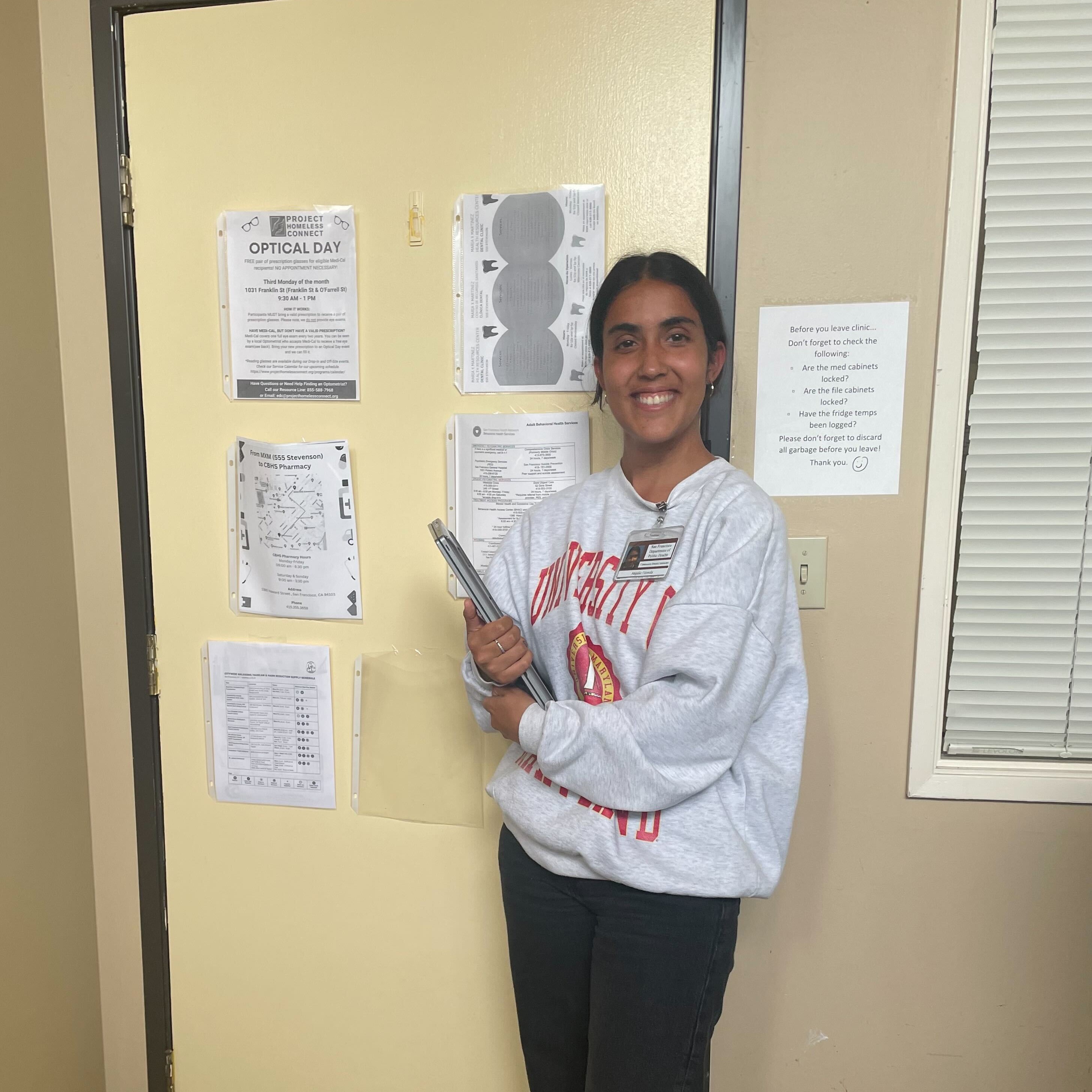Beyond the Checklist: Embracing Human Connection in Shelter Health
When I began my role as the National Health Corps Shelter Health Educator, my biggest worry was not being able to do enough to have a real impact on the community. I was completely new to San Francisco, having been born and raised in suburban central Maryland.
In our Pre-Service Orientation week, previous members and my NHC supervisors discussed how our year of service would be one of the most challenging and exciting years of our lives. During my first weeks of service, I felt unsure of where my place was. Having graduated months prior, this was my first true experience outside of college and part-time jobs. Though I had worked medical assistant jobs throughout college, my positions involved step-by-step, repetitive work that had been spelled out to me on my first day: Call the patient's name in the waiting room, bring them into the exam room, get a set of vitals, ask the initial questions, hand them a gown, and tell them the provider would be in shortly. Coming from that environment and college, I was accustomed to someone telling me what to do and quickly and effectively executing those instructions.
 In my National Health Corps role, I began with what I knew: entering the patient into the EMR schedule and taking vitals, eager to help with what the nurse or provider directed me to do. But I soon discovered there was a lot more room for experimentation and growth. It was in this space that I learned so much about myself and the people who visit shelter health nurse clinics. I noticed the web of stigma that exists around sexually transmitted infections (STIs) specifically and jumped into designing flyers and handouts for patients. Looking for more to do, I helped organize STI health fairs at some of our shelter sites. I delivered a presentation on prevention to shelter residents alongside my fellow AmeriCorps cohort member.
In my National Health Corps role, I began with what I knew: entering the patient into the EMR schedule and taking vitals, eager to help with what the nurse or provider directed me to do. But I soon discovered there was a lot more room for experimentation and growth. It was in this space that I learned so much about myself and the people who visit shelter health nurse clinics. I noticed the web of stigma that exists around sexually transmitted infections (STIs) specifically and jumped into designing flyers and handouts for patients. Looking for more to do, I helped organize STI health fairs at some of our shelter sites. I delivered a presentation on prevention to shelter residents alongside my fellow AmeriCorps cohort member.
Our most recent was at Taimon Booton Navigator, a shelter that provides specialized services for individuals in need across a diverse range of backgrounds. Hearing from a patient that our presentation gave them a safe space to discuss a topic they felt they couldn't talk about anywhere else made me realize what truly matters. It was in the quiet moments that I saw what was most important. A warm exchange with a patient at our women's drop-in center who had just found out she got a shelter bed; or a client at the A Woman's Place Shelter said that our nurse team were the only people in her life who made her believe in kindness. It's natural to want to do everything you know to help, but patients know their bodies best, regardless of the degree of a medical provider, and I've learned how important it is to let them lead the way in their own care.
Our team does a lot of outreach in shelter spaces where people live, sleep, and eat. When outreaching to patients in shelters, I remain mindful that I am entering their living space. For instance, I ensure I don't announce that the nurse clinic is open loudly early in the morning in case folks are sleeping, or I give them space when conversing with them by their bedside. I always introduce myself first, even if we are in a rush, and allow space for patients to express their thoughts or voice any questions.
Initially, I was so accustomed to looking for the next thing I could do to make an impact. But, it was when I kept an open mind, ready to receive and learn from the people I served, that I got lost in the human connection of it all, and that's where the impact truly lies.
